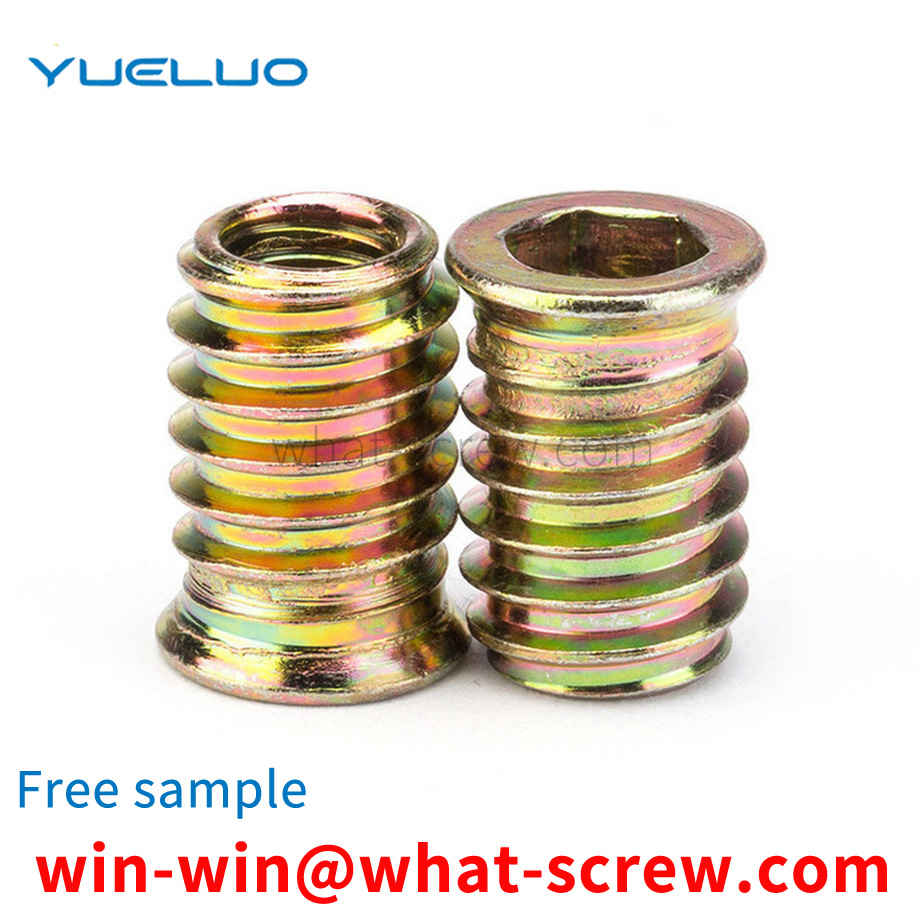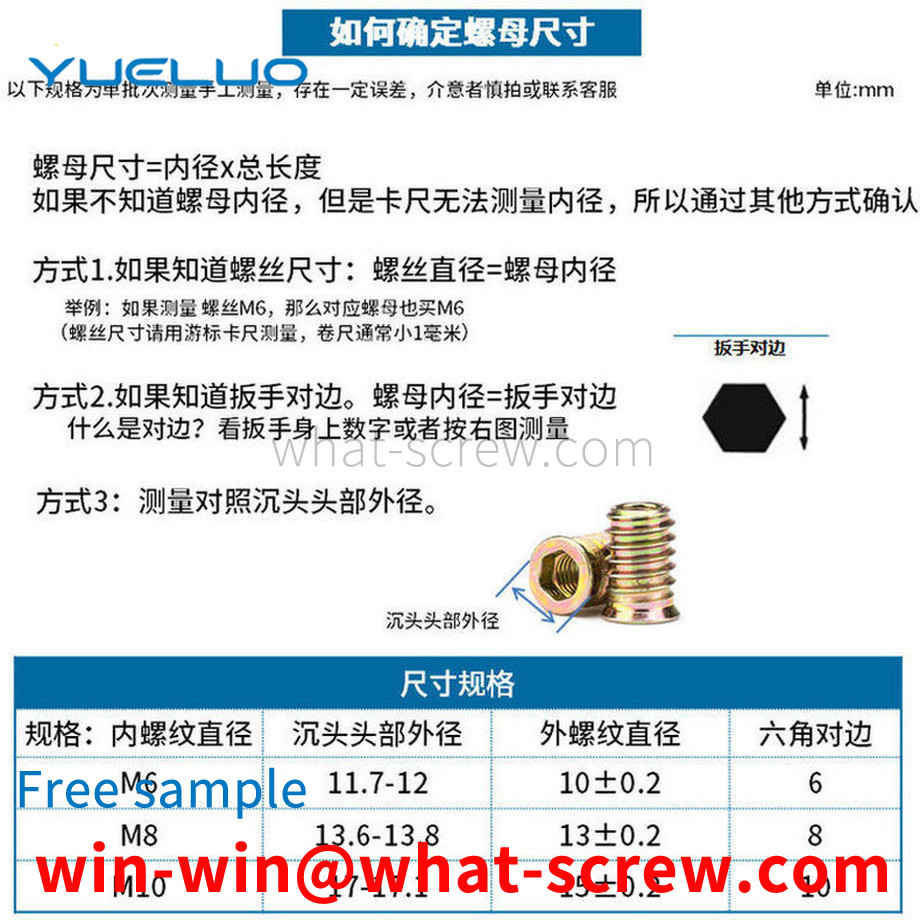Fasteners are a type of mechanical parts that are used for fastening connections and are widely used. They are used in a wide range of industries, including energy, electronics, electrical appliances, machinery, chemicals, metallurgy, molds, hydraulics and other industries. This kind of fastener is a widely used mechanical basic part. It is characterized by a wide variety of specifications, different performance and uses, and a very high degree of standardization, serialization and generalization. Therefore, some people also refer to a type of fasteners with existing standards as standard fasteners, or simply as standard parts.
Stainless steel screws do not necessarily corrode and rust, but that stainless steel screws have a stronger ability to withstand corrosion and rust than iron screws. But stainless steel screws can still rust under certain circumstances. So under what conditions are stainless steel screws prone to rust! What is the cause of rust? Stainless steel screws have better characteristics, strong corrosion resistance, high temperature resistance, and strong rust resistance. But it will rust in harsh environments. For example, stainless steel screws are exposed to the sun and the wind every day under very humid conditions. Over time, it will definitely rust a little. For example, in contact with some acid-base chemicals to cause chemical reactions. cause corrosion and rust. There are also bad stainless steel screws, such as stainless steel SUS201 screws used in seawater. Due to long-term immersion, SUS201 stainless steel screws themselves are not suitable for use in salty seawater. cause corrosion and rust. For the use of marine products, it is generally recommended to use stainless steel SUS316 screws, because 316 stainless steel screws have better performance such as corrosion resistance. From the above, it can be concluded that stainless steel screws will still corrode and rust under certain circumstances. Therefore, this requires the rational use of stainless steel screws. Use stainless steel screws of different materials in different situations. And in different occasions, when using stainless steel screws, special attention is also required, and some details need to be considered more. Try to control the corrosion and rust of stainless steel screws as much as possible.
As an important connecting part in the automobile assembly process, the screw plays a vital role in the safety performance of the automobile. The assembly of each component of the vehicle cannot be separated from the function of the screw. In the connection of the automobile assembly and its parts, the screw connection As well as simple structure, easy maintenance and disassembly, it is widely used. There may be thousands of screws on a car. The screw connection of each part has its own function and function. Once one or some screw connections fail, it will be It will lead to the loosening or even separation of the connected parts. If the car is running, it is likely to cause some parts to fail or break away. The light ones will cause the main functions of the car such as steering and braking to fail, potentially affecting driving safety. If it is not found in time, it will lead to major safety accidents and even endanger the lives of people. The failure of the car screws will cause the safety hazard of the whole vehicle, and will also cause customers to worry and complain, thus affecting the reputation of the company and endangering the life of the company. cycle.
④ Screw tooth type A: Self-tapping sharp tail (Japanese standard type 1) sparse AB: Self-tapping sharp tail (Japanese standard type 4) dense; B: Self-tapping flat tail (Japanese standard type 2) sparse; C: Self-tapping Tapping flat tail (the third type of Japanese standard) dense; P: double wire teeth Type triangle teeth CCT: C type triangle teeth PTT: P type triangle teeth STT: S type triangle teeth
At present, the main four kinds of anti-shedding nuts are still prone to falling off. Friction and anti-shedding are in the case of shock, vibration and variable load. At the beginning, the nut will decrease in preload due to relaxation. As the number of vibrations increases, the loss of preload will increase. The force increases slowly, eventually causing the nut to loosen and the threaded connection to fail. The mechanical nut is prevented from falling off by adding a stopper, which makes it inconvenient to disassemble. The riveting and punching prevention is to prevent the separation by welding, bonding, etc. This method can only be disassembled by destroying the bolt pair.
We have many years of experience in the production and sales of screws, nuts, flat washers, etc. The main products are: concave end set screws, cap type decorative nuts, stainless steel square nuts, saddle type single-sided tooth washers and other products, we can provide you with Provide the right fastener solution for you.



















 Service Hotline
Service Hotline




